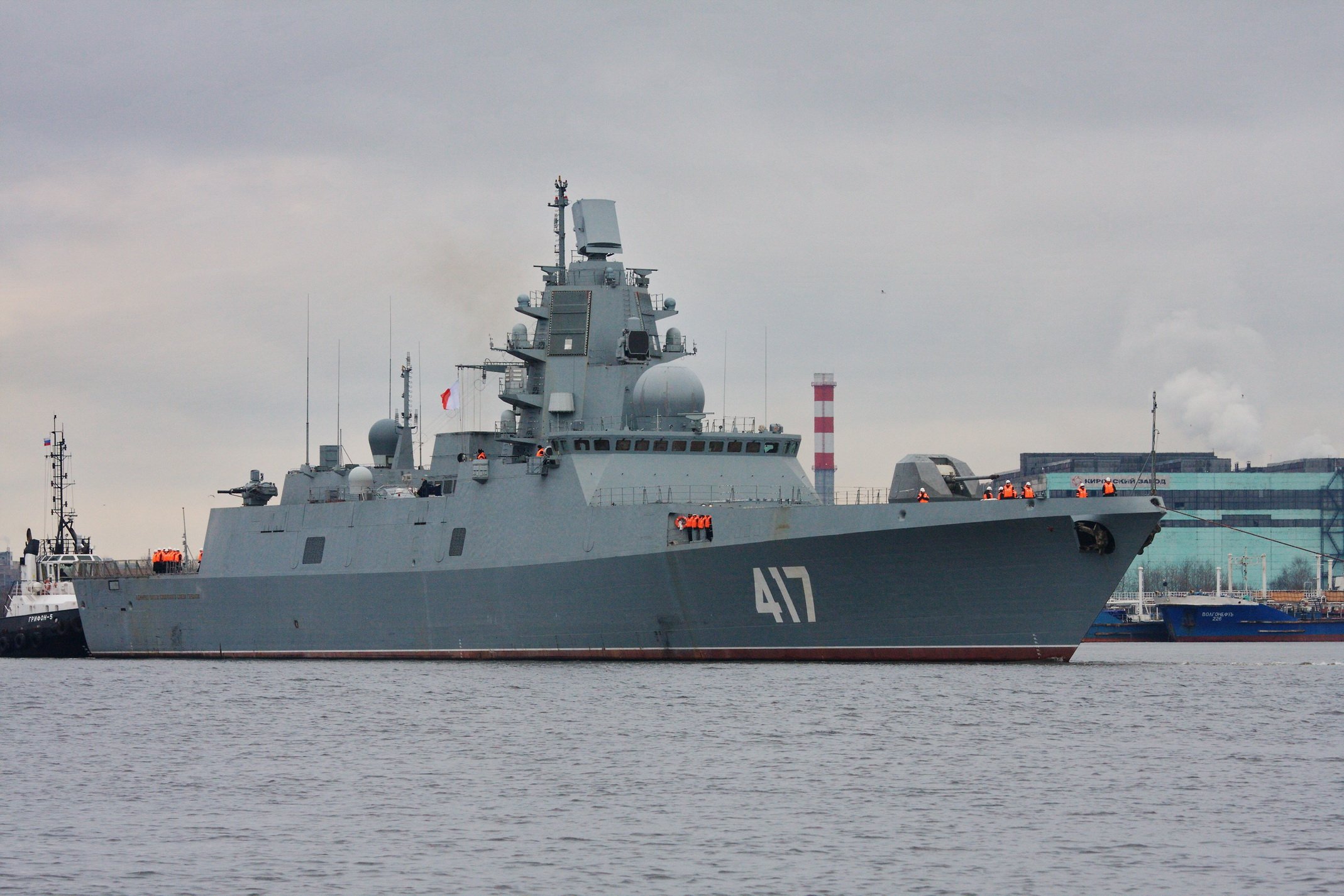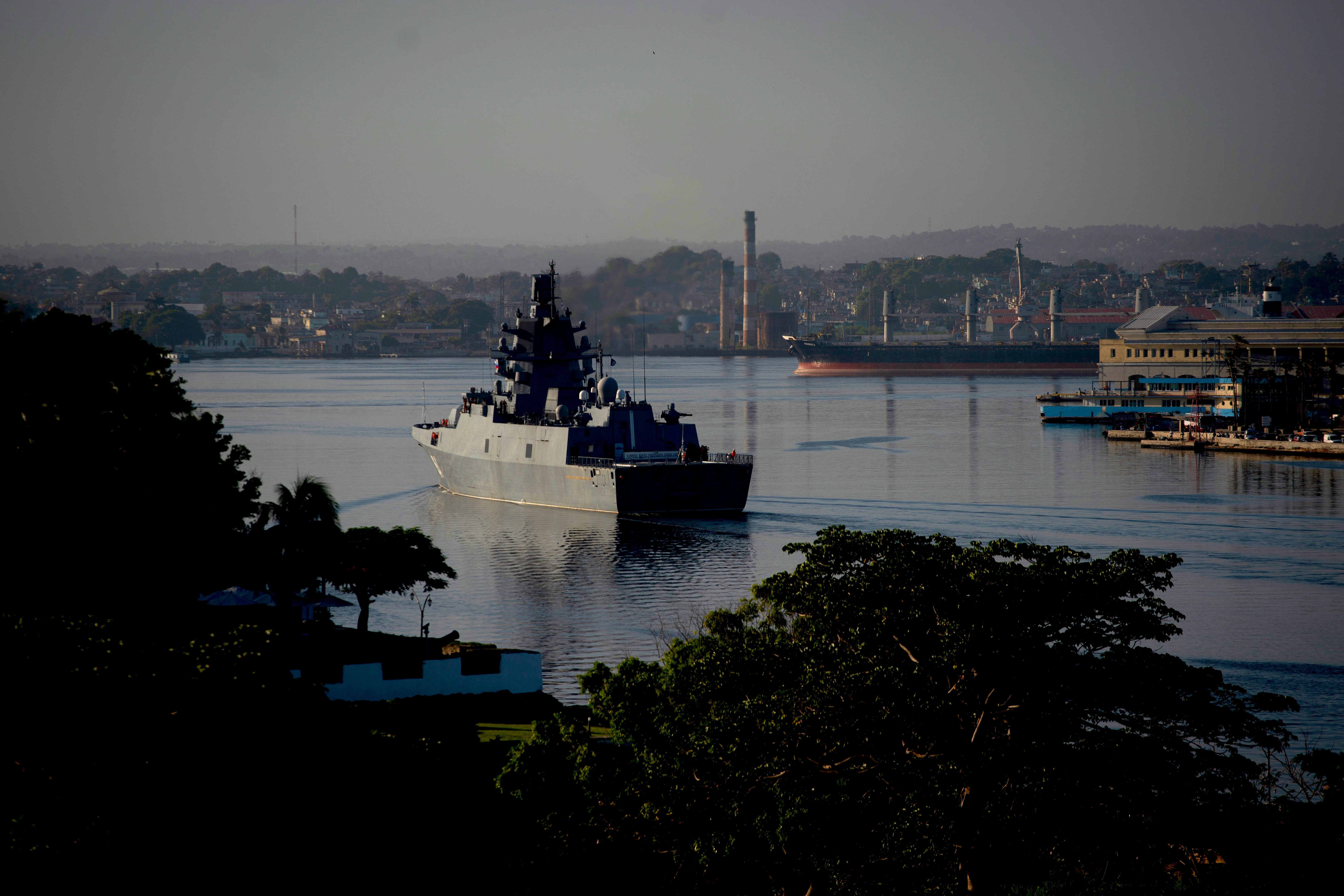Russian Navy Presence in Cuba

The Russian Navy’s presence in Cuba has a long and complex history. The first Russian naval facilities in Cuba were established in the early 1960s, following the Cuban Missile Crisis. The crisis brought the world to the brink of nuclear war and led to a significant increase in tensions between the United States and the Soviet Union. In the aftermath of the crisis, the Soviet Union agreed to remove its nuclear missiles from Cuba in exchange for a US pledge not to invade the island. However, the Soviet Union continued to maintain a naval presence in Cuba, which has been a source of tension between the two countries ever since.
The Russian Navy’s presence in Cuba has been justified by the need to protect Soviet interests in the region. The Soviet Union has long considered Cuba to be a strategic ally, and the Russian Navy’s presence in Cuba has helped to deter potential threats to the island. The Russian Navy has also used its facilities in Cuba to support its operations in the Atlantic Ocean and the Caribbean Sea.
The Russian Navy’s presence in Cuba has declined in recent years, but it remains a significant factor in the region. The Russian Navy currently has a base at Cienfuegos, which is home to a variety of ships, including submarines, destroyers, and frigates. The Russian Navy also has a presence at Havana, where it operates a naval hospital and a training center.
Significance of the Cuban Missile Crisis
The Cuban Missile Crisis was a major turning point in the Cold War. The crisis brought the world to the brink of nuclear war and led to a significant increase in tensions between the United States and the Soviet Union. In the aftermath of the crisis, the Soviet Union agreed to remove its nuclear missiles from Cuba in exchange for a US pledge not to invade the island. However, the Soviet Union continued to maintain a naval presence in Cuba, which has been a source of tension between the two countries ever since.
The Cuban Missile Crisis had a profound impact on the Russian Navy’s presence in Cuba. The crisis led to the establishment of a permanent Russian naval base at Cienfuegos, which has been a major base of operations for the Russian Navy ever since. The crisis also led to an increase in the number of Russian ships and submarines deployed to Cuba.
The Russian Navy’s presence in Cuba has declined in recent years, but it remains a significant factor in the region. The Russian Navy currently has a base at Cienfuegos, which is home to a variety of ships, including submarines, destroyers, and frigates. The Russian Navy also has a presence at Havana, where it operates a naval hospital and a training center.
Current Status and Operations of the Russian Navy in Cuba

Russian navy cuba – The Russian Navy maintains a limited presence in Cuba, consisting primarily of intelligence-gathering vessels and personnel. The presence of Russian naval assets in Cuba has been a source of concern for the United States, which views it as a potential threat to its security interests in the region.
Types of Vessels and Personnel, Russian navy cuba
The Russian Navy’s presence in Cuba includes a variety of vessels, including intelligence-gathering ships, submarines, and support vessels. The Russian Navy also maintains a small contingent of personnel in Cuba, including intelligence officers and technical specialists.
Strategic Implications
The Russian Navy’s continued presence in Cuba has several strategic implications. First, it provides Russia with a foothold in the Caribbean Sea, which is a strategically important region for the United States. Second, it allows Russia to monitor US naval activities in the region. Third, it gives Russia a platform from which to launch military operations in the event of a conflict with the United States.
Potential Impacts and Implications of Russian Navy Activities in Cuba: Russian Navy Cuba
The Russian Navy’s presence in Cuba has the potential to significantly impact regional security and diplomatic relations. The increased military activity in the region could lead to heightened tensions and mistrust among regional actors, potentially destabilizing the geopolitical landscape.
The Russian Navy’s activities in Cuba have raised concerns about the potential for increased military conflict in the region. The presence of Russian warships and submarines in close proximity to the United States could lead to accidental confrontations or misunderstandings, potentially escalating into larger-scale conflicts. Additionally, the establishment of a permanent Russian naval base in Cuba could provide Russia with a strategic foothold in the region, enabling them to project power and influence throughout the Caribbean and beyond.
Diplomatic and Political Implications
The Russian Navy’s presence in Cuba has also sparked diplomatic and political tensions between Russia and the United States. The United States has long considered Cuba to be within its sphere of influence, and the presence of Russian military forces in the region is seen as a challenge to American dominance. This has led to increased diplomatic pressure from the United States on Cuba to limit Russian military activities, and has also strained relations between the two countries.
Responses and Countermeasures
The United States and other regional actors have taken a number of steps in response to the Russian Navy’s presence in Cuba. The United States has increased its military presence in the region, including deploying additional warships and aircraft to the area. The United States has also imposed sanctions on Russia and Cuba in an attempt to pressure them to reduce their military cooperation. Other regional actors, such as Mexico and Canada, have expressed concern about the Russian Navy’s presence in Cuba and have called for a reduction in tensions.
Amidst the escalating tensions between the Russian Navy and Cuba, the world’s attention has turned to the ongoing rivalry between Brazil and Mexico. Brazil vs Mexico has long been a heated sporting and cultural competition, with both nations vying for supremacy in various fields.
However, the geopolitical implications of this rivalry cannot be ignored, as it has the potential to shape regional alliances and influence global power dynamics. As the Russian Navy continues to flex its muscles in the Caribbean, it is essential to consider the broader ramifications of these events and their impact on the delicate balance of power in the Americas.
The presence of the Russian navy in Cuba during the Cold War sparked tensions between the superpowers, casting a shadow over global security. This standoff echoed the historic rivalry between the United States and Brazil, as documented in usa vs brazil.
Like the Russian navy in Cuba, Brazil’s rise as a regional power in the 19th century challenged the dominance of the United States in the Americas, creating a geopolitical landscape fraught with competition and mistrust.
The Russian Navy’s presence in Cuba during the Cold War was a major concern for the United States, as it brought the threat of nuclear war closer to home. However, the current global health crisis posed by the covid variant is a more immediate and pressing threat to the world’s population.
While the Russian Navy’s presence in Cuba was a geopolitical issue, the covid variant is a global health crisis that requires cooperation and collaboration among all nations.
The Russian navy’s presence in Cuba during the Cold War was a major concern for the United States, as it brought the threat of nuclear war closer to home. However, the Argentine football club Argentina FC managed to provide some relief from the tensions of the Cold War, as their matches brought people together from all over the world in a spirit of sportsmanship and camaraderie.
Despite the ongoing conflict between the two superpowers, the Russian navy’s presence in Cuba did not escalate into a full-scale war, and the world was able to breathe a collective sigh of relief.
The recent deployment of Russian naval vessels to Cuba has raised concerns about a potential military buildup in the region. However, these concerns have been tempered by the visit of Pope Francis to Cuba, which has helped to ease tensions between the two countries.
Despite these diplomatic efforts, the Russian navy’s presence in Cuba remains a reminder of the ongoing geopolitical tensions in the region.
